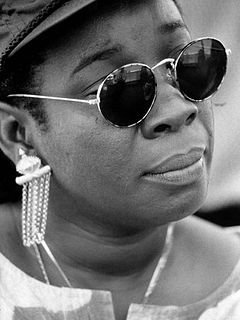A Quote by John Banville
We carry the dead with us only until we die too, and then it is we who are borne along for a little while, and then our bearers in their turn drop, and so on into the unimaginable generations.
Related Quotes
A man builds a house in England with the expectation of living in it and leaving it to his children; while we shed our houses in America as easily as a snail does his shell. We live a while in Boston, and then a while in New York, and then, perhaps, turn up at Cincinnati. Scarcely any body with us is living where they expect to live and die. The man that dies in the house he was born in is a wonder. There is something pleasant in the permanence and repose of the English family estate, which we, in America, know very little of.
We attach our feelings to the moment when we were hurt, endowing it with immortality. And we let it assault us every time it comes to mind. It travels with us, sleeps with us, hovers over us while we make love, and broods over us while we die. Our hate does not even have the decency to die when those we hate die-for it is a parasite sucking OUR blood, not theirs. There is only one remedy for it. [forgiveness]
Think then what it is to live on here eternally and yet be human; toage in soul and see our beloved die and pass to lands whither we maynot hope to follow; to wait while drop by drop the curse of the longcenturies falls upon our imperishable being, like water slow drippingon a diamond that it cannot wear, till they be born anew forgetful ofus, and again sink from our helpless arms into the void unknowable.
I compare the troubles which we have to undergo in the course of the year to a great bundle of sticks, far too large for us to lift. But God does not require us to carry the whole at once. He mercifully unties the bundle, and gives us first one stick, which we are to carry today, and then another, which we are to carry tomorrow, and so on. This we might easily manage, if we would only take the burden appointed for us each day; but we choose to increase our troubles by carrying yesterday's stick over again today, and adding tomorrow's burden to our load, before we are required to bear it.
The diseased, anyway, are more interesting than the healthy. The words of the diseased, even those who can manage only a murmur, carry more weight than those of the healthy. Then, too, all healthy people will in the future know disease. That sense of time, ah, the diseased man’s sense of time, what treasure hidden in a desert cave. Then, too the diseased truly bite, whereas the healthy pretend to bite but really only snap at the air. Then, too, then, too, then, too.
Yet the story of Orpheus, it occurs to me, is not just about the desire of the living to resuscitate the dead but about the ways in which the dead drag us along into their shadowy realm because we cannot let them go. So we follow them into the Underworld, descending, descending, until one day we turn and make our way back.
This little separate self must die. Then we shall find that we are in the Real, and that Real is God, and He is our own true nature, and He is always in us and with us. Let us live in Him and stand in Him. It is the only joyful state of existence. Life on the plane of the Spirit is the only life, and let us all try to attain to this realization.
What would happen to a body that was starved, suffocated and then forced to drink poison? It would first suffer and then die an agonizing death. We willingly starve and suffocate our hearts by turning away form the remembrance of God. And then we poison our hearts through the bad company we keep, the garbage that goes into our eyes and ears, and emanates from our tongue...
And then we wonder why our heart feels dead.
If you're a woman, it's almost impossible to establish a relationship. You're too much for everybody. It's too much. The woman always has to play this role of being fragile and dependent. And if you're not, they're fascinated by you, but only for a little while. And then they want to change you and crush you. And then they leave.







































